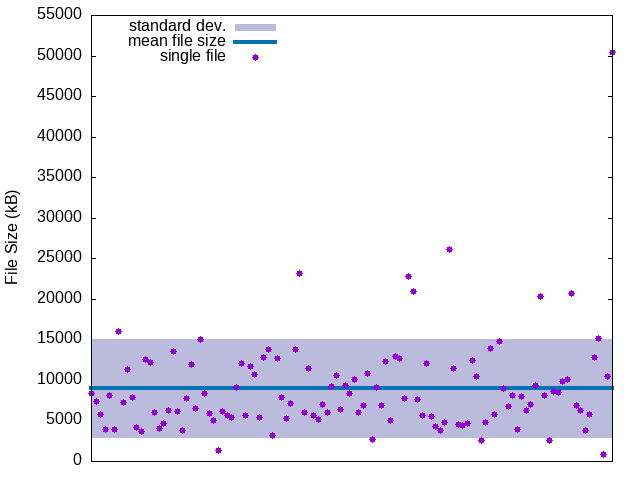So far I've got something like the following laid out:
#include <stdio.h>
struct Post {
char *title;
char *date;
};
int main()
{
struct Post p[] = {
{.title = "first post",
.date = "2021-11-30" },
{.title = "second post",
.date = "2020-11-30" },
{.title = "third post",
.date = "2020-12-03" }
};
for (int i = 0; i < (sizeof(p) / sizeof(struct Post)); i++) {
printf("%s\n%s\n---\n", p[i].title, p[i].date);
}
return 0;
}
first post
2021-11-30
---
second post
2020-11-30
---
third post
2020-12-03
---
Just a title string and a date string, stuffed into a structure
with no other consideration. Additionally, I need the first paragraph
for the index page and the body of the post (which is really the
entire file contents). It occurs to me though that the first paragraph
(or "leader") is really a substring of the body and I might avoid
duplicating data by instead tracking the span of such a substring:
<h1>Bulk Data Generation in SQLite</h1>
<span>2021-07-18</span>
<p>
Browsing the internet this afternoon I
saw <a href="https://avi.im/blag/2021/fast-sqlite-inserts/">an
article about fast SQLite inserts</a> posted online. As a fun
exercise I thought to try things out myself.
</p>
<h2>Premise</h2>
<p>
…
#include <stdio.h>
typedef struct Span {
int start;
int end;
} Span;
typedef struct Post {
char *title;
char *date;
char *body;
Span leader;
} Post;
int main()
{
Post p[] = {
{.title = "first post",
.date = "2021-11-30",
.body =
"a title string\n2020-01-02\n<p>Imagine this is drawn from a file</p>\nPretend it is very long",
.leader = { 26, 66} },
{.title = "second post",
.date = "2020-11-30",
.body =
"another title\n2020-03-04\n<p>It might be multiple lines long \nand of indeterminate length</p>Maybe it goes on for pages and pages",
.leader = { 25, 92} },
{.title = "third post",
.date = "2020-12-03",
.body =
"the last title\n2020-05-06\n<p>But even so the span or extent should be able to index into the body of the whole</p>\n\n\nwho knows",
.leader = { 26, 114} }
};
for (int i = 0; i < (sizeof(p) / sizeof(Post)); i++) {
printf("%s\n%s\n---\n", p[i].title, p[i].date);
for (int j = p[i].leader.start; j < p[i].leader.end; j++) {
printf("%c", p[i].body[j]);
}
printf("\n\n");
}
return 0;
}
first post
2021-11-30
---
<p>Imagine this is drawn from a file</p>
second post
2020-11-30
---
<p>It might be multiple lines long
and of indeterminate length</p>
third post
2020-12-03
---
<p>But even so the span or extent should be able to index into the body of the whole</p>
It seems as though I will obviously have another level of indirection
for the strings but I'm not yet sure whether this is a premature move
to optimize things or a truly better solution. I guess I'll try it out
and see how much pain it causes (presumably in getting the "leader"
out later).
